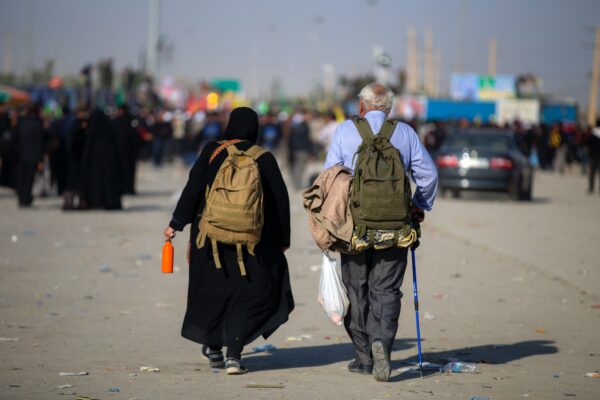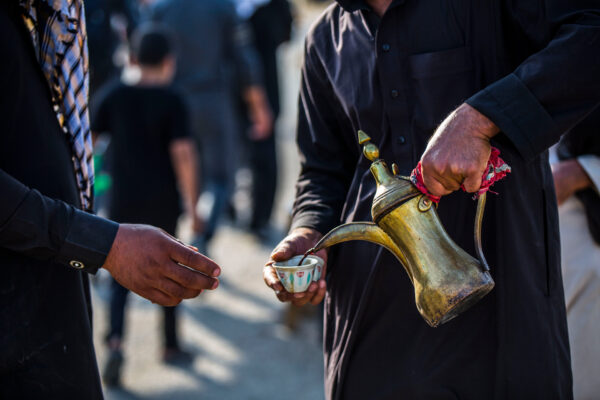“Hardship, however, does not equate to unhappiness.”
“We believe in heaven, yet we bury our dead beneath the ground rather than in the sky.”
“Hardship, however, does not equate to unhappiness.”
There is a boy in the countryside of Iraq that presses his tongue against the lip of a dry, discarded plastic bottle, attempting to summon the mere memory of water right this second. He lies on the sand-covered ground, twin trails of dried tears frozen on either cheek, his hand aching for his dead father’s warm and careful grasp. Though this child is still, he is flying through space.
Right now, you are moving 1,040 miles per hour counterclockwise among the stars, yet we choose to read our time clockwise. By the time you read this, 83 children have used up their first breath to cry their way into this world. Simultaneously, 35 have swallowed their final taste of air.
We believe in heaven, yet we bury our dead beneath the ground rather than in the sky.
This, however, is the fault of gravity. We find that the same ground beneath the boy’s small feet pulls us all down, but remember, you are always pulling back up, and in the end, neither of you really wins. And so, in a world filled with contradictions, you are merely left standing, but maybe that’s not enough. Maybe you need to realize that by the time you finish reading this, you will have moved 23,250 meters through space, that you are always, always flying, your eyes searching for something in our world to change.
This boy laying in the street is not an enigma in a place like Iraq, where the cheeks of countless children are well acquainted with the scorching sand-covered concrete. In the daytime, they sit in the streets, hoping to incite the generosity of another human being. They use the money that is given to them to purchase spray bottles and towels, then they walk between the stopped cars at intersections, cleaning the dust-clad windshields in neat strokes. If they are lucky, someone rolls down their window.
Hardship, however, does not equate to unhappiness.
The undeniable spirit of a little boy named Hassan stands as a testament to this. Just before sunset, when the sky is streaked with deep reds and purples, perhaps on a street where one would take a wrong turn, a little corner of Basra seems to contain all the right in the world. Here lies a patch of flattened sand, a group of children scattered across it like mown and withered grass in a desert. Zahra, Salwa, Hussain, Yusuf, and Hassan chase one another in never ending loops of laughter and the occasional scraped knee. Here Hassan balances a yellowed soccer ball on the edge of a tattered sneaker. A toothy smile stretched across his flushed cheeks.
I met Hassan during a brief visit to Iraq. My Uncle told me he had come to a small orphanage in Basra two years ago, fleeing a Kurdish city in the very outskirts of Northern Iraq. Hassan is eight years old, with striking gray eyes that seem to glow against his dark skin. He has a habit of staring at his feet.
This young boy has experienced the unimaginable. The images he traces back in his memory are realities our distant minds fail to truly comprehend. He describes that a strange man came to their window with sandy robes and black fabric covering his face. His mother had told him to run up to the roof and hide, to lay down on the ground below the fence. He heard one gunshot, a cry, and then a second, then covered his ears and pressed his face into the ground. He stayed there until the sky darkened, then descended into the house to find his father, shot in the head, in the living room, and his mother, in the chest, in the kitchen. The next morning, the army came in large trucks and drove him away.
Countless people in the neighborhood, moved by his story, have offered their homes to the child, but each time he refuses. He shakes his head and clicks his tongue, “Ana chibeer, ana asawee bayt il roohee.”
“I am big, I will make my own home.”
And it seems that this is where he has made it, in the small fraction of time everyday that he chases a dirty soccer ball with his friends. Children like Hassan do not make homes in places or people, they build homes in small, significant moments. And this, is the source of such astounding resilience.
It is difficult to acknowledge the imperfections that exist in the world around us. For those who are willing to witness it, suffering can be found everywhere. Violence orphans children and destroys homes in faraway places. Invisible hardships dwell in the homes of our neighbors, some issues sit at school desks next to ours – hidden and overlooked, like hunger or depression. Some, erode the fabric of community around us like racism, bias, and acts of hatred and prejudice.
It is even harder to transform recognition into action. Civic responsibility and service are an essential part of change. One must be accountable for the decisions we make, the values we embrace, the type of community and world to which we commit to build. An organization named Who Is Hussain seems to understand the importance of this accountability. Dozens of chapters across the world spread the values of social justice and equality, but their efforts do not halt here. Volunteers work to mobilize the citizens of their local communities in service. They prepare thoughtful meals for the homeless in Boston and distribute water bottles to passersby in India. During their Give Campaign, the chapters united to raise more than $25,000, which provided life-sustaining care to orphans like Hassan in Iraq.
They have come forth with a new initiative that combats collective passivity in a remarkable manner. The #ItStartsWithYou campaign presents us with a challenge: to take action, to inflict change in the smallest and largest of ways. They inspire us through simple acts of kindness, gifting passersby with unconditional roses in the street and thrusting warm drinks into shivering hands on particularly cold days. They demonstrate to us the universal magic of goodness. They speak with kindness as their native tongue, a language we must adopt as our own, for kindness knows no distance nor culture nor backgrounds. This constitutes the very essence of our human connection.
We have a tradition in Iraq that we are taught as children. Our parents teach us that, no, they are not your friends, they are not your neighbors, not mere strangers. The people with whom we occupy the same ground and breath the same air are , “anfusna.” Our fellow people are, “ourselves,” that every person is bound to you in unshakable, everlasting humanity, that we are all one connected body in a sea of worldly contradictions. And that boy, from the beginning of this piece, the one lying thirsty on the ground crying for his father, is Hassan. But really, he is me, he is you, and we abandoned him then. We abandoned ourselves then. By the time you finish reading this, you will have moved 232,500 meters through outer space just by sitting here, hopefully in the right direction. I hope your eyes never stop searching for something worthy of change. And I hope it starts with you.
by Noor Alsaad





